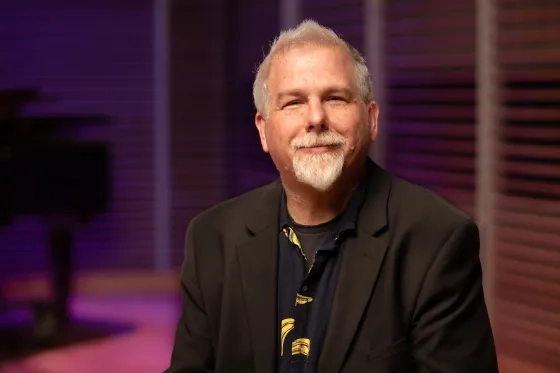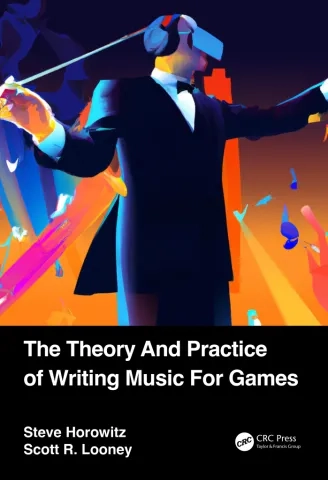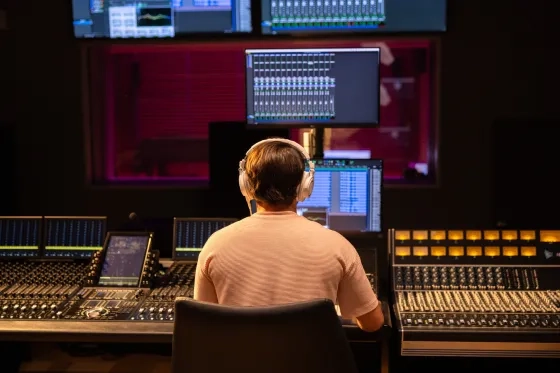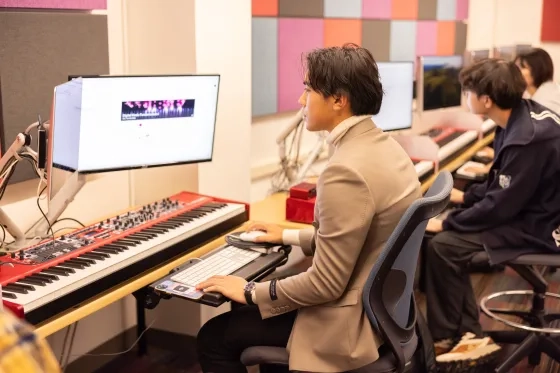SFCM Faculty Nominated for Game Audio Network Guild Award
The book ‘The Theory and Practice of Writing Music for Games’ by Steven Horowitz and Scott Looney was nominated for Best Game Audio Article or Publication.
If you’re interested in creating music for video games, SFCM faculty wrote the book on it, literally.
The Executive Director of SFCM’s Technology and Applied Composition (TAC) Program Steven Horowitz was nominated for Best Game Audio Article or Publication at the next Game Audio Network Guild (G.A.N.G.) awards, for his book The Theory and Practice of Writing Music for Games. The book was co-written with Scott Looney, adjunct SFCM faculty member.
Released in 2024, the book aims to educate readers on the inner workings of making music for video games. “Game composers face a host of issues that just don’t exist in linear mediums,” Horowitz said. “It provides a different aesthetic approach and a fascinating compositional challenge unlike any other.”
Founded in 2002 by game industry veterans, G.A.N.G. is the leading organization for those involved in game audio including music, sound design, dialogue, and game development. Their mission is to support members through four pillars: Networking, Education, Advocacy, and Recognition. “G.A.N.G. represents the best in-game audio on all fronts. It feels amazing to be recognized by such a prestigious organization.” Horowitz said.
Horowitz joined SFCM in early 2024, his career includes more than two decades as Audio Director at Nickelodeon Digital, as well as work on SpongeBob SquarePants, FarmVille 2, Teenage Mutant Ninja Turtles, Dora the Explorer video games, among dozens of others.
“This book attempts to condense our experience in game music in a form that will be useful to the reader,” Horowitz said. “The intention is simply to expose readers to the unique challenges of writing music for games with a focus on creativity first.” The composer was inspired to write the book by his own students. “Listening to my students and trying to give them the information and techniques they need to go out in the world and do better than I have,” Horowitz continued. “To really get involved with the game audio industry these days, it is essential to understand what’s under the hood of a game engine, and be able to speak the language of game design and implementation.”
Under Horowitz’ leadership, the TAC program has expanded with new courses and pathways designed to amplify opportunities for students, preparing them for future careers in a variety of fields from film and game scoring to emerging media, spatial audio mixing, audio engineering, and music production. SFCM’s TAC alumni include film and game scorers, television commercial composers, successful performing artists, and working media professionals at companies like Sony, Ubisoft, and Electronic Arts.
While the book is geared towards video game music, Horowitz believes all musicians can learn something from it. “We all use the same skills: knowledge of theory, harmony, melody and rhythm combined to give the listener goosebumps and send a chill down the spine, using the power of music to create a compelling and unforgettable experience.”
The winners will be announced at the G.A.N.G. Awards ceremony on March 20, 2025, held during the Game Developers Conference in San Francisco.
Learn more about studying Technology and Applied Composition at SFCM.



